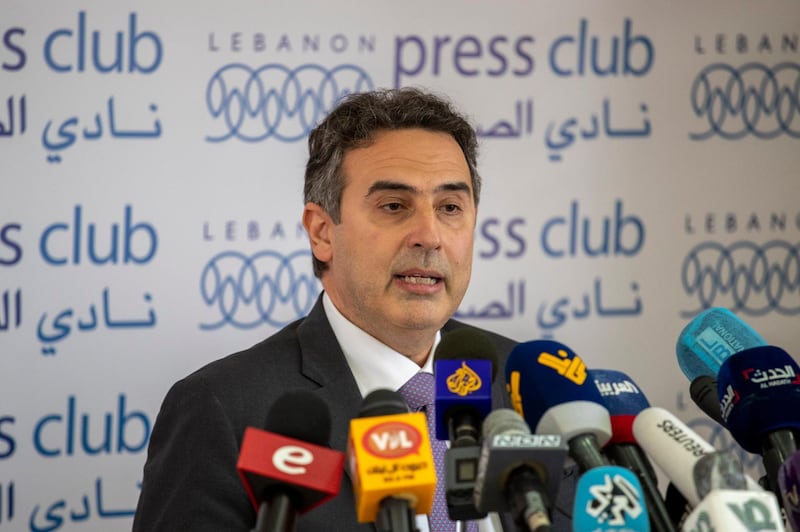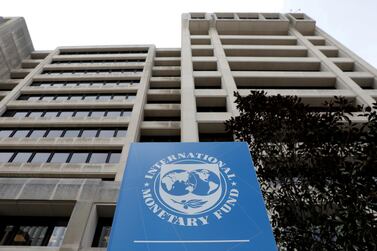A key member of the Lebanese government team negotiating a bailout from the International Monetary Fund resigned on Monday, the second official to quit this month as authorities struggle to come together to save an economy in free fall.
The finance ministry’s director general, Alain Bifani, said he’s leaving to protest the government’s handling of the country’s worst financial meltdown in decades. Mr Bifani, who’s been in the job since 2000 and also sits on the board of the central bank, follows the departure of Henri Chaoul, an adviser to the ministry.
Mr Bifani has played a pivotal role in drafting the government’s rescue plan and faced accusations of taking a hard line on local lenders as the central bank and the government clashed over the scale of losses in the financial system – a crucial issue in Lebanon’s talks with the IMF.
“My decision is meant to protest the way everyone in power has handled the crisis,”Mr Bifani told Al Jadeed TV. “The path that we’re taking today is reckless.”
Officials are in talks with the IMF for a $10 billion (Dh36.7bn) loan programme after the government defaulted in March on a Eurobond repayment. It seeks to restructure its entire debt of $90bn and overhaul an economy that's seen its currency plunge on the black market with unemployment and poverty rates surging.
But the government has come under heavy scrutiny from lawmakers, lenders and the central bank for a plan it had drafted with the help of its financial adviser, Lazard. It estimates total losses incurred by the government, lenders and the central bank at $69bn – three times Lebanon’s total economic output projected for this year.
To plug some of that hole, it envisages debt haircuts that would wipe out lenders’ capital and require a shareholder bail-in while protecting most depositors.
Lenders and central bank governor Riad Salameh presented varying numbers. Banks are proposing the government sell its assets valued at $40bn and pay back what it owes to the central bank, also known as Banque du Liban. Lawmakers say the government’s numbers are exaggerated and need to be reevaluated.
The divisions also prompted Mr Chaoul to quit earlier this month and accuse the political class of colluding with lenders to torpedo a deal that would require them to pay the price for bankrupting the state. Mr Bifani and Mr Chaoul were two of three members of a finance ministry team taking part in the government’s talks with the IMF.
Mr Bifani has insisted that government’s numbers were correct and has criticised the way others have calculated losses.
Lebanon has been struggling with a severe dollar shortage since inflows from citizens overseas dried up as the country’s political and economic crises deepened last year, prompting lenders to at first limit withdrawals and then effectively stop dispensing the greenback. That has sparked a surge in rates on the black market, which has recently accelerated to nearly 8,000 Lebanese pounds per dollar, compared with the official rate of 1,507.5 per dollar.
Just as news of Mr Bifani’s resignation emerged, security forces were reopening a road in north Lebanon that was blocked by protesters over the collapse of the currency and deteriorating living conditions.
Local lenders allowed clients on Monday to withdraw dollars in local currency at a weaker rate than the one set in April, bankers said.
The central bank in April said customers could withdraw dollars at the market rate, which was later set at 3,000 pounds. At the time, the circular led to a sharp depreciation of Lebanon’s currency.
Prime Minister Hassan Diab has repeatedly blamed the central bank for failing to inject enough dollars in the market to stem the collapse. Lebanese inflation has meanwhile soared to levels last seen in the aftermath of the country’s civil war three decades ago.
The government has tried to stabilise the pound, detaining money changers and drawing up a stricter plan to deal with what officials call “greed” by food traders.






